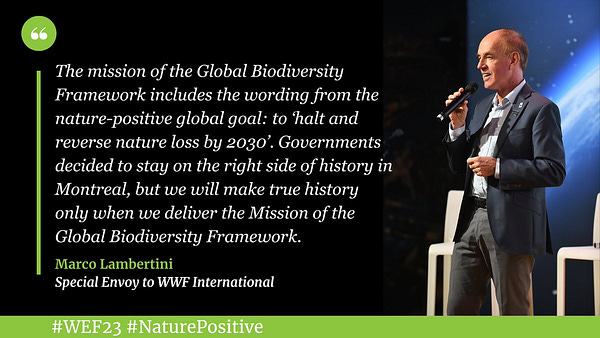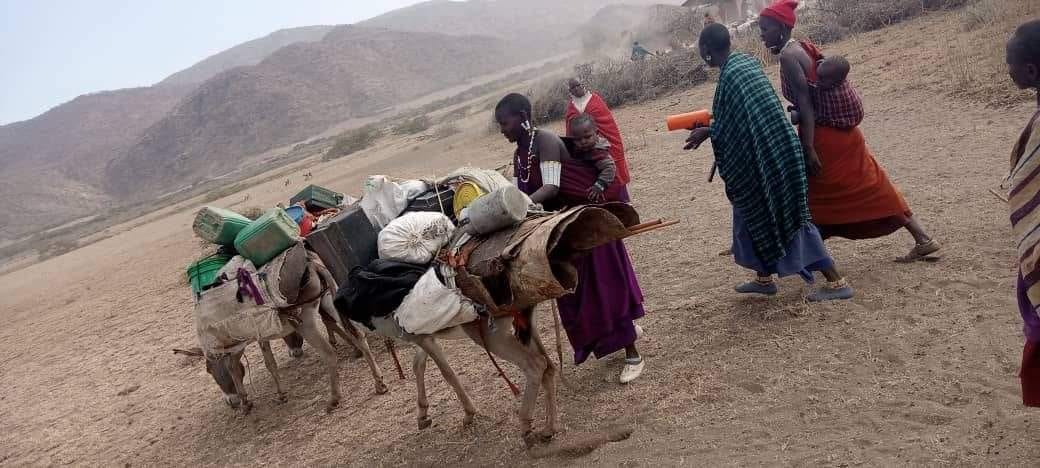Welcome to our June-July 2023 newsletter!
We would like to express our sincere gratitude to everyone who has subscribed to our newsletter, and has been waiting patiently for this issue.
A great deal has happened since the beginning of the year, but we hope to bring you up to speed without overwhelming.
To understand better what we are campaigning against and why, make sure to check out our past two newsletters.
Keen to contribute to an upcoming issue, or have any questions or feedback? Reach out to us at nodealfornature@protonmail.com!
In this issue:
Understanding the past to understand the present
Resistance is fertile!
Ruto declares Kenya’s vast tracts of land open to carbon credit investors
Help support frontline communities
Join our upcoming Twitterstorm
1. Understanding the past to understand the present
To understand why the conservation industry, led by the World Wildlife Fund, has made Africa its target for the world’s biggest land grab (marketed as a New Deal for Nature, a Global Goal for Nature, Nature Positive, or 30x30), we need to understand the history of colonial conservation.
Below are three resources which may be helpful in decolonising minds from the “wild Africa” propaganda many of us, particularly in the West, have been subjected to for decades.
Colonial conservation in Africa: a 150-year history
Colonial, or fortress, conservation is the model of conservation set to expand massively as the land grabbing conservation industry seeks more power and profits.
This talk by Kenyan-based conservation expert Dr Mordecai Ogada provides some useful historical context.
The Invention of Green Colonialism
In this book, French historian Guillaume Blanc traces the complex origins of the Western obsession with preserving African landscapes, in particular the roles of esteemed bodies such as the WWF, IUCN and UNESCO.
You can purchase the book online from Survival International’s shop. Also consider ordering it for your local library.
Our Land, Our Nature
In April, Survival, the global movement for Indigenous and tribal peoples – from whom we have learned so much – held its third “Our Land, Our Nature” conference.
If you are curious to learn more about colonial conservation, you won’t be disappointed.
2. Resistance is fertile!
This became clear at a recent EU Parliament event where one of our campaign signatories Prof. Clive Spash spoke on a panel alongside Green Finance Observatory’s Frédéric Hache, Vandana Shiva and former WWF DG Marco Lambertini.
Lambertini, now WWF’s “Special Envoy”, looked somewhat defeated as he failed to elicit a single round of applause from the audience. No social licence for his “deal for nature” from a public so dear to the organisation.
Further evidence that WWF is not optimistic about achieving its goals came back in January at Davos, with Lambertini stating that true history won’t be made until the biodiversity framework agreed by governments in Montreal (see our December newsletter for more on this) will be delivered.
It's all to play for clearly!
Power to the people, the people got the power! ✊🏿 ✊ ✊🏽


3. Ruto declares Kenya’s vast tracts of land open to carbon credit investors
Whether WWF’s “nature positive” future becomes a reality hinges very much on: Kenya and pastoralists.
Kenyan President William Ruto recently declared vast tracts of land open to investors as he plans to make the country a carbon credits leader, with the government also hosting an Africa Climate Summit this September.
Blood Carbon
Within this context, Survival International launched its Blood Carbon campaign in March, exposing an existing carbon credits project run by the Kenyan branch of US-based conservation NGO The Nature Conservancy known as the Northern Rangelands Trust (NRT) on land inhabited by more than 100,000 Indigenous Samburu, Borana and Rendille pastoralists.
For militarised “conservation” areas, i.e. national parks and conservancies such as NRT’s, to remain financially viable significant investment will be required in “nature-based solutions” – solutions also known as carbon credits or carbon offsets.
Successive Kenyan governments have prioritised exclusionary wildlife conservation to the detriment of pastoralism, a traditional way of life now under increasing threat from the sale of carbon credits.
To learn more, watch the video below.
In a recent update, Survival’s Decolonize Conservation campaign co-ordinator Fiore Longo recounted the success of the campaign, with the sale of carbon credits from NRT’s project suspended following public pressure.
Scrapping the project altogether would, however, send a hugely powerful signal to investors, so make sure to share the #BloodCarbon email action far and wide. 🙏
4. Help support frontline communities
On the request of two Maasai pastoralists, one based in Tanzania and another in Kenya, we have set up fundraisers to help support the respective needs of their communities.
Support displaced Maasai families of Loliondo:
https://www.gofundme.com/f/support-displaced-maasai-families-of-loliondo
Support resistance to carbon credits in southern Kenya: https://www.gofundme.com/f/resistance-to-carbon-credits-in-southern-kenya
Even if you personally are not in a position to donate, we would appreciate if you could share these links with those who may be. 🙏
5. Join our upcoming Twitterstorm
If you live in Europe, you may have heard a great deal of fuss of late about the proposed Nature Restoration Law.
On reading the draft text, we discovered that the law would encourage investment in natural capital, nature-based solutions and ecosystem services. Which means more funds flowing into the coffers of the land grabbing conservation industry that partners with big polluters such as Shell. So much for tackling climate change.
It also comes as no surprise to see The Nature Conservancy, who happens to partner with Shell, cheerleading this proposed legislation.
📢 Curious to know more and fancy helping us make some noise ahead of an upcoming EU Parliament vote? Email us at nodealfornature@protonmail.com!
For a colonised people the most essential value, because the most concrete, is first and foremost the land: the land which will bring them bread and, above all, dignity.
Frantz Fanon



